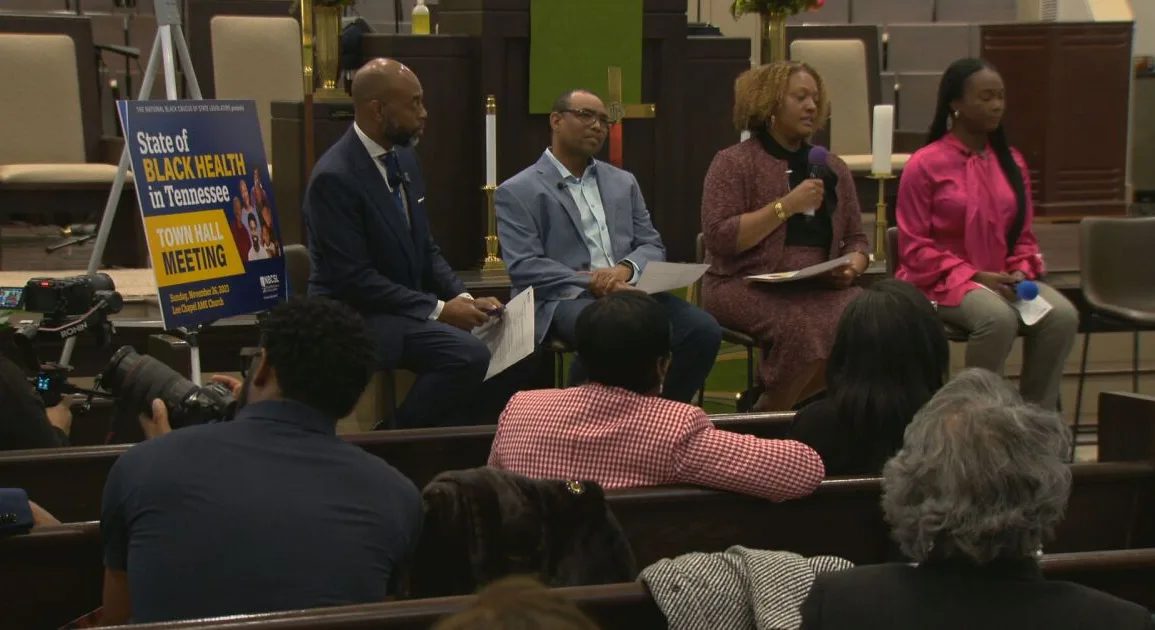NASHVILLE, Tenn. (WTVF) — Sunday night, state and health officials gathered at Lee Chapel AME Church in Nashville to talk about the state of Black health in Tennessee.
How do we lessen the racial gap when it comes to health, and how do we help our younger generations live longer, healthier lives?
Those are questions experts from Shelby County, Tennessee State University, Fisk University and the National Black Caucus of State Legislators Pubic Policy Research Institute tackled.
The town hall, the first of several discussions part of the National Black Caucus of State Legislators conference, particularly addressed the issue of obesity and diabetes in our Black communities and how we could make our future generations healthier.
“We’re not trending in a good trajectory,” explained Tennessee State Representative Sam McKenzie. “I’m a father and grandfather, and it’s my goal to have my children and grandchildren do better than I did.”
2022 data from the CDC shows Tennessee’s prevalence of obesity is almost 38.9%. That’s the fifth highest in the United States.
“We say food is medicine but food can also be a drug,” noted Howard Mosby, who attended the event.
Dr. Michelle Taylor with Shelby County’s health department said how much money you make, and whether you grow up in poverty, often has an effect on your health and life expectancy.
“If we know that several of our children are living below the poverty line, and we know they may not be food secure, then if they are going into adulthood with food insecurity, then those things can lead to obesity and diabetes later in life,” she explained.
With that in mind, she and several other experts agree federal funding, a look at existing state policies and educational health programs for youth can all contribute to lessening the gap.


